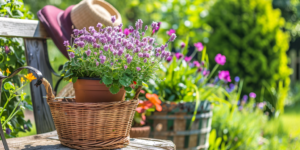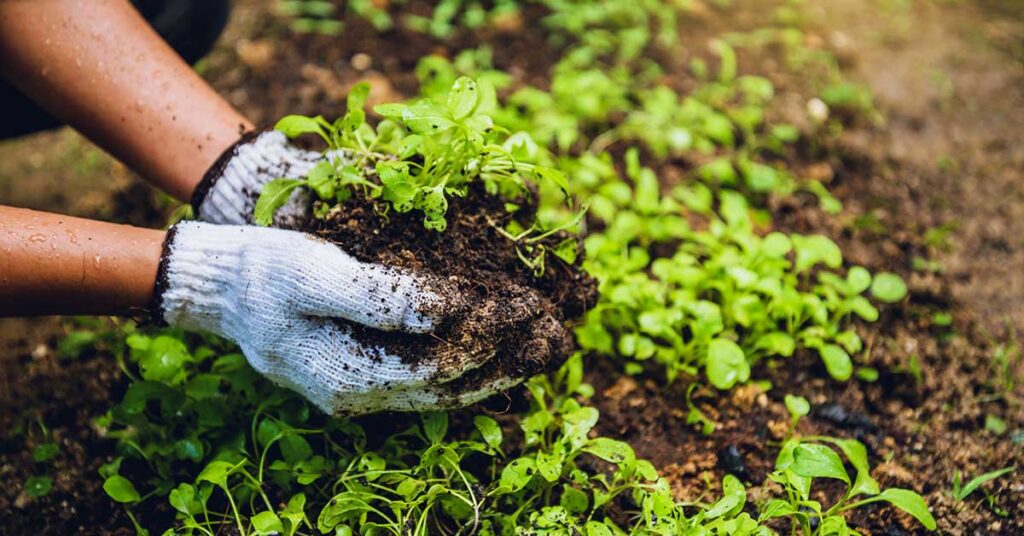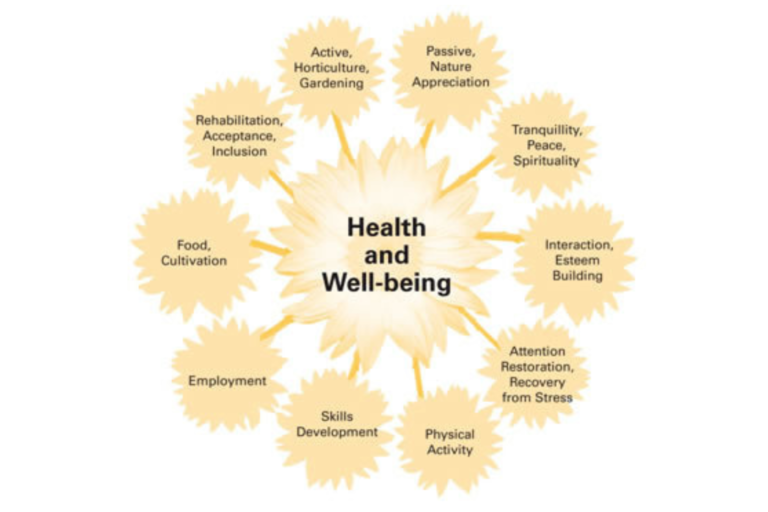
Summer Gardening
When we think of summer, we imagine long sunny days, barbecues and holidays, shorts and summer dresses. We picture picnics on the beach and parks

October 10 is World Mental Health Day. At CoirProducts.co.uk, since our inception, we have focused on supporting and recognising initiatives on gardening and mental health.
Thrive is an organisation that uses gardening to bring about positive changes in the lives of people living with disabilities or ill health or who are isolated, disadvantaged or vulnerable. CoirProducts is proud to support their amazing work at their London Battersea branch. In marking World Mental Health Day, we spoke with Thrive about the important work that they do, especially the benefits of social and therapeutic horticulture.
How does Thrive help improve health and wellbeing through gardening?
Thrive uses gardening to improve health and wellbeing in three main ways. Thrive’s trained practitioners use plants and gardens to enable people to improve their mental and physical health, to develop social skills, combat isolation and promote learning. This is referred to as Social and Therapeutic Horticulture (STH). Hundreds of people with mental ill health, disabilities and long-term health conditions benefit from our STH programmes at Thrive’s centres in Birmingham, London and near Reading, as well as in the community.
Thrive also enables people living with ill-health or disability to enjoy the health and wellbeing benefits of gardening in their own space and time by providing information to make gardening easier. Thrive offers a wide range of how-to guides and practical information which are suitable for people living with many different health conditions or disabilities, whether new to gardening or life-long gardeners. Each year the organisation helps thousands of people via its website or who get in touch via phone calls, emails, social media and mail from across the UK and beyond.
At the same time, Thrive is committed to educating, advising, and training people in how to use STH to benefit others. Having helped many practitioners create therapeutic gardening programmes around the country, as well as contributing to projects internationally, Thrive uses its expertise and experience in STH to provide courses and training, which are delivered online and face-to-face. Their practitioners advocate on behalf of the profession to get STH recognised as a therapeutic intervention and to ensure that provision is matched to beneficiaries needs.
Why are such initiatives important?
Evidence indicates that spending time in nature and doing outdoor activities in a social setting with others has multiple benefits for health, mental health and social interaction. Gardening can improve physical health, strength, coordination and stamina as well as improve mood and reduce stress and anxiety. Gardening with others builds confidence, communication and social skills that leads to greater independence. Learning about gardening and plants develops skills and motivation.
But what exactly is horticultural therapy?
Social and Therapeutic Horticulture utilises the positive benefits of gardening with others in an outdoor setting to improve health, wellbeing, skills, confidence, social interaction, independence and motivation. Social and therapeutic horticulture is the process of using plants and gardens to improve physical and mental health, as well as communication and thinking skills.
Gardening is a wonderfully flexible medium that can transform lives and Thrive sees first-hand how gardening can help everyone, regardless of age or disability.
Social and therapeutic horticulture uses the garden as a safe and secure place to develop someone’s ability to mix socially, make friends and learn practical skills that will help them to be more independent. Using gardening tasks and the garden itself, Thrive’s horticultural therapists build a set of activities for each gardener to improve their particular health needs and to work on certain goals they want to achieve.
The benefits of a sustained and active interest in gardening include:
The diagram below shows the many benefits of social and therapeutic horticulture with overall health and wellbeing at the centre.

What are some of the benefits of social and therapeutic horticulture?
Social and therapeutic horticulture (STH) can benefit people in a number of ways:
Social and therapeutic horticulture also benefits people with many different disabilities, including those recovering from stroke and heart disease, blind and partially sighted people, those in the early stages of dementia and people with physical and learning disabilities.
From a recent client survey Thrive found that:
Check out Abi’s story on YouTube!
Gardening and spending time in nature has been shown to have enormous benefits to mental health, through stimulating our senses, fresh air, learning skills, being active, engaging in meaningful occupation, making a positive contribution, socialising with others, motivation and independence and having a structured routine.
Thrive is active in researching and promoting the benefits of gardening and horticultural activity. It is important to increase people’s understanding of the power that gardening has, so Thrive learns and shares ideas with others to continually improve the ways that we work with disabled people.

When we think of summer, we imagine long sunny days, barbecues and holidays, shorts and summer dresses. We picture picnics on the beach and parks

At CoirProducts, glossy marketing adverts have never mattered to us, but what does matter, quite simply, is serving this community with value and purpose. In